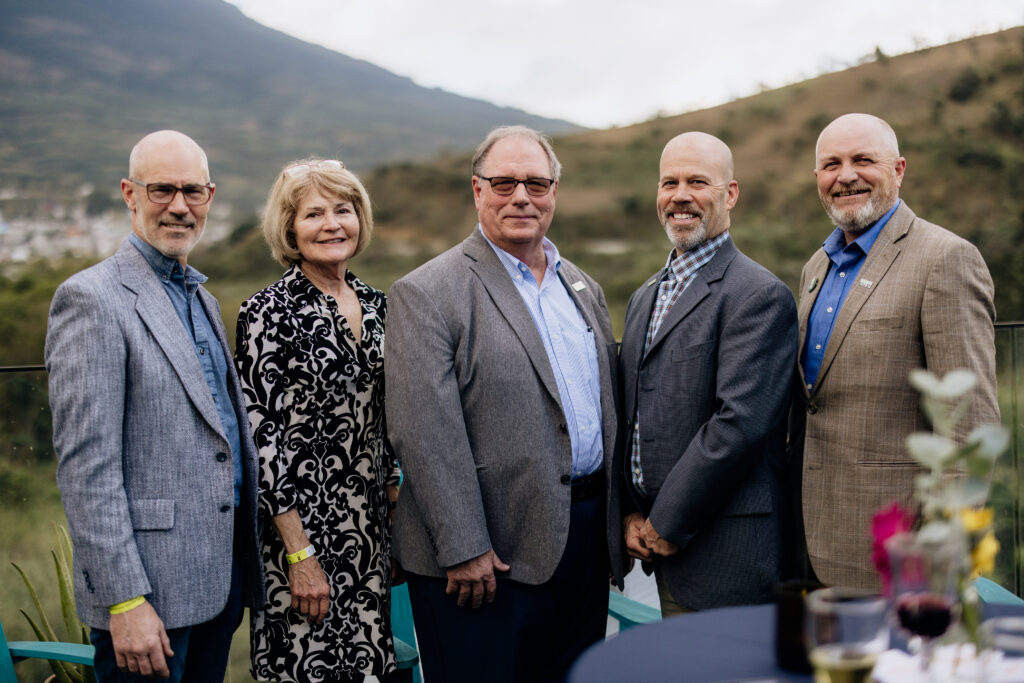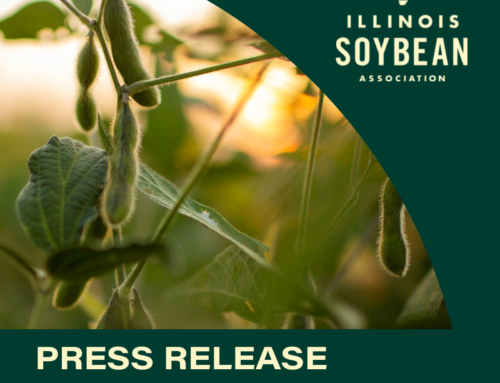Traveling with farmers promises engaging conversation and a fresh perspective. You can count on hearing four key facts from nearly every farmer in the group: where their farm is located, how many acres they farm, the crops they grow and how many generations have worked the land. It’s a rhythm we all know well, whether we’re talking to consumers or fellow farmers, and one I’m always proud to share. My recent trip to Guatemala was no exception. But this time, it wasn’t just about the generations on our farms. Instead, it was about the generational growth happening around soybean market development in another part of the world.
In early February, I joined a delegation of Midwest farmers and staff from the World Initiative for Soy in Human Health (WISHH) to attend the World Food Security Dialogue in Antigua, Guatemala. The event brought together food industry leaders, government officials and experts in nutrition with a shared goal to create a more secure, sustainable food system for the people of Guatemala. For over two decades, WISHH has been actively engaged in Guatemala, working to improve food security and address nutritional needs.
To date, WISHH has provided critically needed soy nutrition and food science assistance to some of the region’s fastest-growing food manufacturers. In just 14 months, nearly 200 companies have launched more than 600 new retail products containing soy protein. These new offerings not only excite and benefit Guatemalan consumers, but they also serve as a catalyst, challenging competitors to bring new innovations to market.
WISHH’s work extends beyond Guatemala. Over the past 25 years, the program has expanded its footprint to 29 countries across Latin America, sub-Saharan Africa and Asia. Yet, Guatemala remains foundational as one of the first countries where U.S. soybean farmers invested their time and trust in global market development through WISHH.
Among our group were four Illinois farmers, and throughout the trip, I discovered the significance of how deep Illinois’ impact in Guatemala runs. The Illinois Soybean Association (ISA) played a foundational role in introducing textured soy protein into local diets. In 2004, ISA Director and former Chairman Stephen Scates was a key voice in launching WISHH’s educational programs in Guatemala. Today, his son Tim continues that legacy as an ISA board member, having also traveled to Guatemala to see those investments growing. Another Illinois father-son team, C.W. and Scott Gaffner, have served the board with a shared commitment to the relationship with Guatemala, albeit more than a decade apart.
These directors are a testament to the strength of generational growth and development, whether on an operating farm or a part of the soy food value chain in a growing market like Guatemala. Just as we pass down farming practices and values in our families, similar knowledge is being transferred in Guatemala with a real impact on the health of their people. Across cultures, within the soy value chain, and through relationships built over time, WISHH has made a positive change that generates food security and supports soybean farmers with growing demand.
Listening to fellow farmers reflect on the strides Guatemala has made in utilizing soy over the past 20 years left a lasting impression on me. Their stories are proof that progress is possible when patient, persistent partnerships take root.
Creating a new international market for Illinois soybeans doesn’t happen overnight. It takes time, trust, and a vision that spans generations. The wheels of change move slowly, but just over 20 years ago, ISA helped build the very wheel that is now moving and gaining momentum. Today, we see dedicated individuals passing that knowledge they have accrued to ensure the next 20 years are even more impactful.



